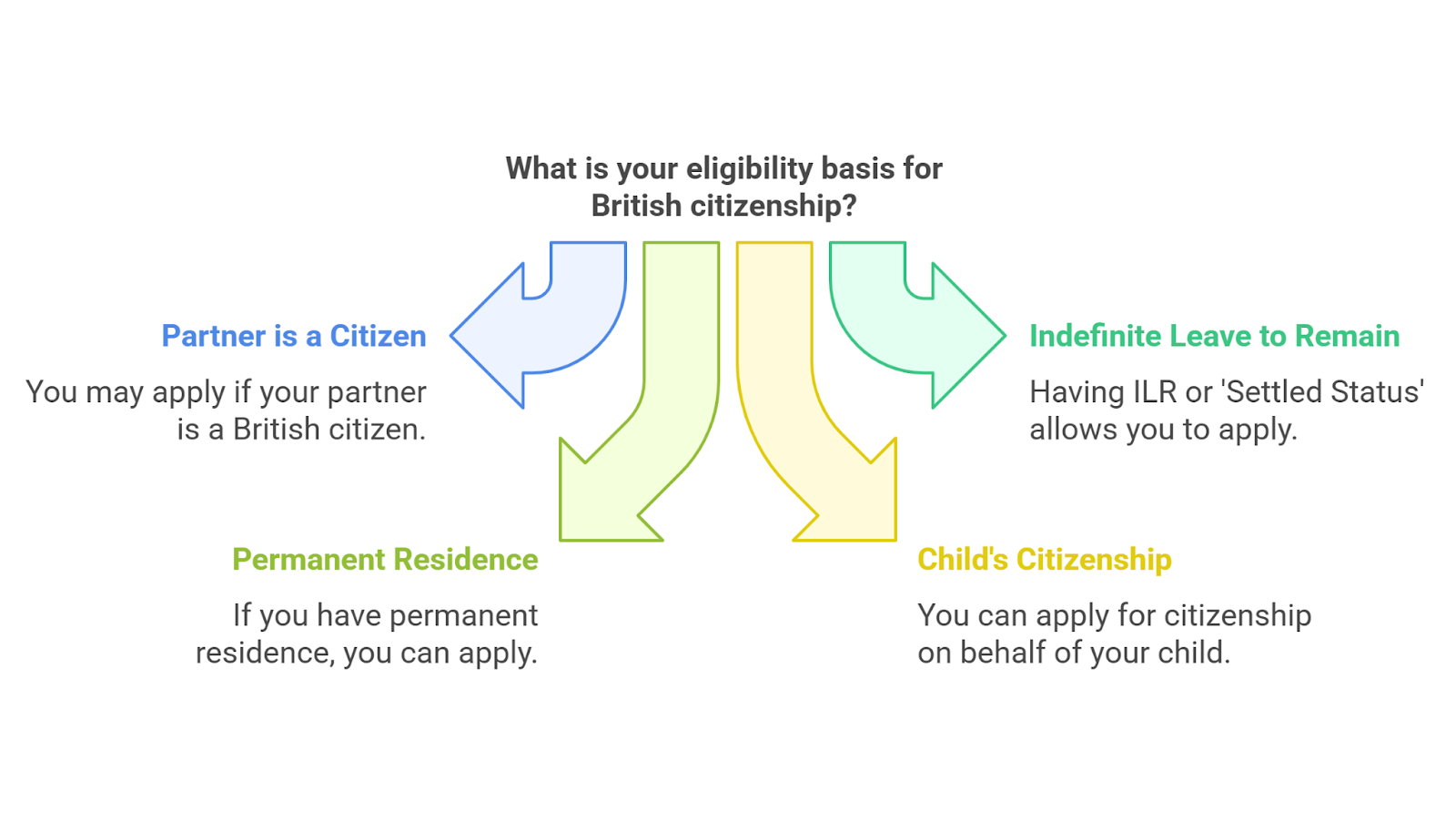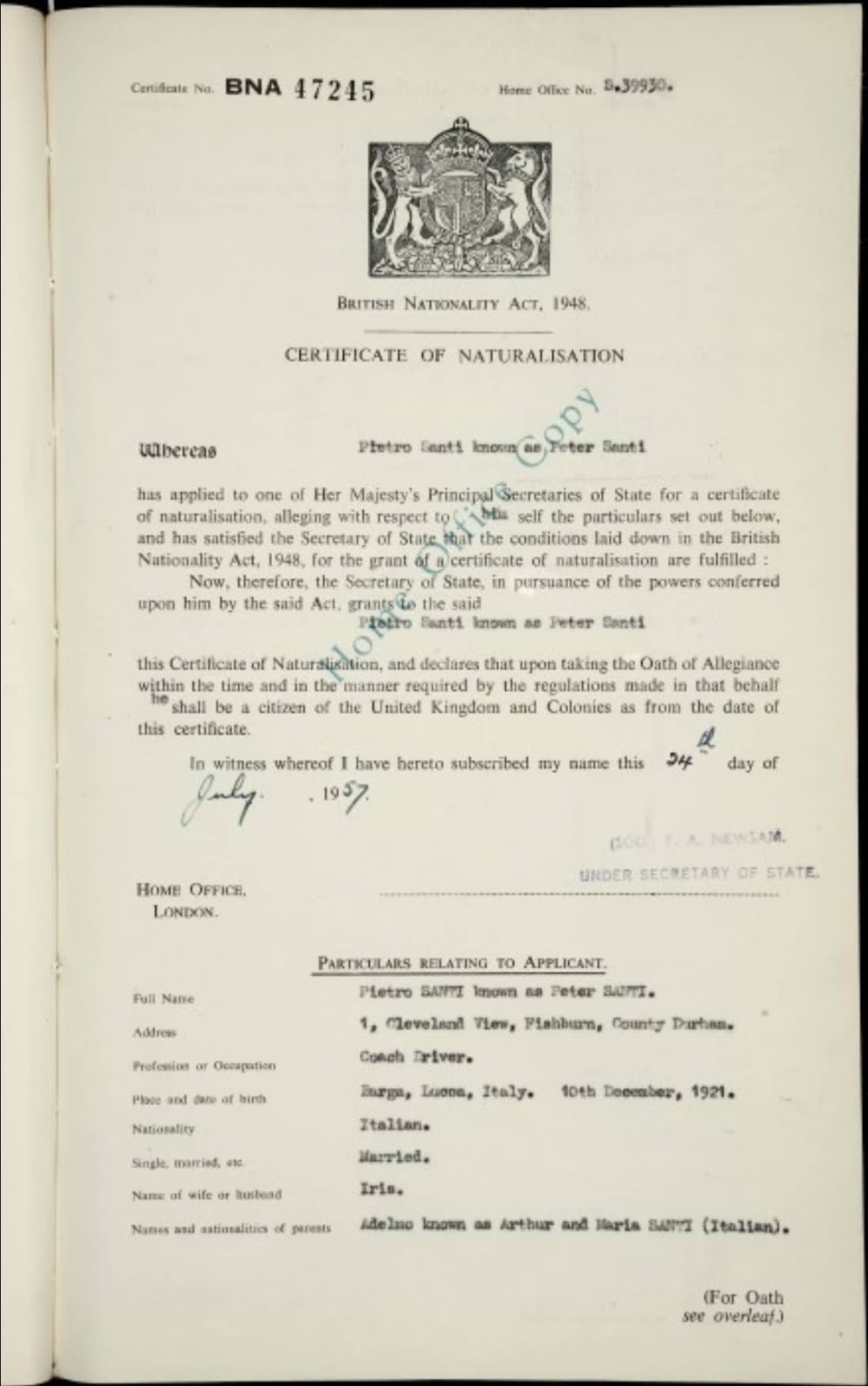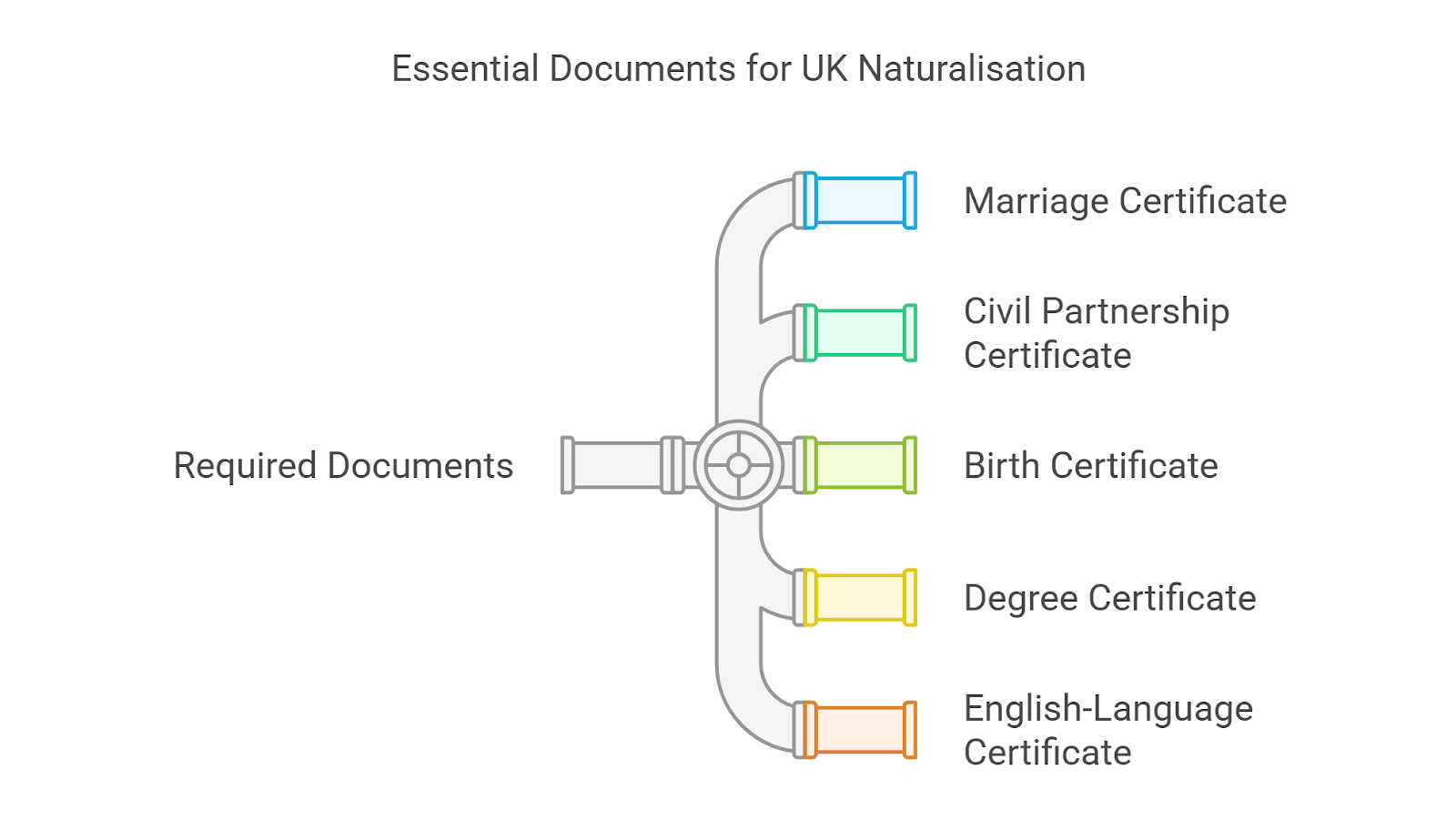What is UK naturalisation?
UK naturalisation is the legal process of becoming a British citizen when you're already a registered citizen of another country. Getting the certificate allows you to apply for a British passport, which is essential for international travel.
Surprisingly, being born in the UK does not automatically grant you British citizenship. Several factors determine your potential citizenship. They include your country of birth, birth year, and parents' citizenship status. If you don't already know, you can find out whether or not you are a British citizen.
The criteria for the naturalisation process have changed and developed over time, but the result remains the same. After a successful application, you're granted British citizenship, which gives you the same legal rights and status as natural-born citizens.
Ways to apply for a British citizenship certificate
There are many ways that you can apply for a British certificate of citizenship, one of which is naturalisation. These different types of applications all depend on your circumstances. The four most common ways to apply for a naturalisation certificate (below) all focus on people who have moved to the UK, such as:
Your partner (through marriage or civil partnership) is a British citizen;
You already have Indefinite Leave to Remain (ILR) or 'Settled Status';
You have permanent residence.
You are applying for citizenship for your child.

There are other ways to apply for a British nationality certificate, but these aren't typically UK citizenship applications through naturalisation. Some of these applications could include
Having a British parent,
Having another form of British nationality,
Having previously renounced your British citizenship,
Being a Commonwealth citizen, and more.
As part of each application process, you'll need to submit different documents to show evidence of your nationality, English proficiency, and travel history, to name a few. We will discuss those later.
Your partner is a British citizen
One of the most common ways to apply for UK citizenship by naturalisation is to do so with your partner. Your partner must be a British citizen through marriage or civil partnership. You can find further information about the specific application requirements on the UK Government website. One of the most important requirements of this application process is that you have lived in the UK for at least 3 years. You will also need either
Your marriage or civil partnership certificate is among other information you will need as part of your application process. If you married abroad or the marriage certificate is written in a foreign language, you must have it translated into English.
You must also prove your knowledge of the "English, Welsh, or Scottish Gaelic" languages. If you have an accepted certificate of your English-speaking ability but it is presented in a foreign language, again you will need to have it translated. We'll discuss the evidence of your English language proficiency in more detail later.
Recommended Reading
Getting Married in the UK as a Foreigner
You have ILR or settled status
You can also apply for British citizenship by naturalisation if you have already had the following for 12 months:
Indefinite Leave to Remain (ILR) in the UK;
'Settled status' (also known as 'indefinite leave to remain under the EU Settlement Scheme');
Indefinite leave to enter the UK (permission to move to the UK permanently from abroad).
You must also show evidence that you have lived in the UK for 5 years before you begin your application. Again, you will need to show proof of your proficiency in the English language.
You have permanent residence
Another popular way to apply for UK citizenship by naturalisation is with a permanent residence. Suppose you or any of your family members are from a country in the European Union (EU), European Economic Area (EEA), or Switzerland. In that case, you will automatically get permanent residence after living in the United Kingdom for 5 years.
Once you have your permanent residence document, you can apply for British citizenship by naturalisation. To receive your permanent residence status, you must submit your birth certificate. Your birth certificate must be officially translated into English if it isn't in English.
If you're applying for citizenship for your child
For a child to have automatic British citizenship, at least one of the parents must have had one of the following when the child was born:
indefinite leave to remain (ILR)
right to re-admission
right of abode
permanent residence status if the child was born on or before 30 June 2021
settled status under the EU Settlement Scheme
You will have to register your child if you didn't have any of these when they were born.

An example of a British naturalisation certificate of Peter Santi from July 1957 retrieved from the national archives
Pro Tip: Before you proceed with the application process, confirm from the UK home office website whether you qualify to apply for a British naturalisation certificate.
What happens after I apply?
After you apply for a UK certificate of naturalisation, you must wait for approval. If your application is approved, you will be invited to a citizenship ceremony. You must attend a citizenship ceremony to receive your naturalisation certificate.
What if there's a mistake in the certificate?
If there's a mistake on your certificate after it is issued, you can correct it by
Downloading and completing an application to correct a registration or naturalisation certificate.
Sending the form and your original certificate to Department 1, UKVI.
If you made a mistake on a registration or naturalisation certificate, you must pay the £400 correction fee to update it. The UKVI will send you a letter if you need to pay.
UK naturalisation certificate requirements
Here are the most common British citizenship application documents you need (please note these documents may require certified translations):

Common document requirements
Again, we will focus on the most common documents you can expect to submit as part of your UK citizenship by getting a naturalisation certificate. They include;
Marriage / civil partnership certificate:
You need this certificate if you are applying when your partner is a British citizen. If you got married abroad, your marriage certificate is very likely issued in a foreign language. If that's the case, it must be presented in English.
Birth certificate
In some cases, you will also need to submit your birth certificate. For instance,
If you were born in an EEA country and are applying for your permanent residence document, you will need to submit your birth certificate and perhaps even the birth certificates of family members.
Suppose family members are British citizens through a connection with British Overseas Territories, present or past (for example, Hong Kong or Gibraltar). In that case, you may need to submit your birth certificate and the birth certificates of family members.
English language certificate
With almost every type of UK citizenship application, you must provide evidence of your English language proficiency. There are a few ways to do this.
If your university is in a non-majority English-speaking country, you'll need an English Language Proficiency Statement (ELPS) from ECCTIS confirming that your degree was taught in English.
Note: If your degree certificate is not in English, then you must have this officially translated.
Recommended Reading
Using ECCTIS to Prove Your English Proficiency for UK Visas
Translations for a UK certificate of naturalisation application
When applying for a UK Certificate of naturalisation, you may need to submit various documents that require certified translations. Here's what you should know
Translation requirements
Every document you submit as part of a UK government application must meet strict translation criteria. If your document isn't in English, then you must have your document officially translated. That official translation must include the following:
confirmation from the translator that it is an accurate translation of the original document
the date of the translation
the translator's full name and signature
The translator’s registration number
the translator's contact details.
If the translated document does not include all the above information, it will not be accepted, and your application may be delayed.
Translator requirements
You may obtain an official translation for your UK naturalisation Application in one of three ways:
Use a translator from the Institute of Translation and Interpreting (ITI) or the Chartered Institute of Linguistics (CIoL).
Use a UK-based translation agency that is a member of the Association of Translation Companies.
Use an official translator in your home country.
Pro Tip: Translayte is a member of the Association of Translation Companies and can produce accurate translations that meet the UK Home Office certifed translation requirement for naturalisation and other immigration applications
Can I translate my own documents?
Many people applying for UK citizenship by naturalisation will have lived in the UK for at least 3 years and have a firm grasp of the English language. Unfortunately, this still doesn't qualify you for translating your documentation. You need a professional translation company to translate the documents; otherwise, they won't be accepted.
Tips to avoid common mistakes in your UK naturalisation application
To translate your document for a UK naturalisation application, you should ensure that an accredited company that offers certified translation services does the translation. Follow these tips to ensure accurate translation
Identify required documents: Determine which documents you must translate based on your specific application type. Common documents include birth certificates, marriage certificates, and English proficiency certificates.
Use a certified translation service: The UK Home Office's certified translation requirements mandate all documents to be translated by a professional translator. Self-translations are not accepted. Ensure the translation is certified. This means the translator must provide a certificate stating the translation is accurate and complete. The certificate should include the translator's contact information and a statement confirming the accuracy of the translation.
Follow format and presentation requirements: The translated document should be presented alongside the original document. Both should be clear and legible.
Notarisation: In some cases, particularly for legal documents, the translation may need to be notarised to ensure its authenticity. Translations offer notarisation services alongside quality certified translations.
Check Home Office certified translation requirements: Refer to the latest UK Home Office guidelines for specific requirements or updates. The guidelines can be found on the GOV.UK website or through resources like Citizens Advice
Recommended Reading
British Passport Application Process
Where to find a certified translator
At Translayte, we translate your document to the accepted UK standard. We guarantee swift delivery in as little as 12 hours after your order is placed. Our extensive network of certified translators can translate your document from over 130 different languages into UK English on time and to a high-quality standard.
We are also a Member of the Association of Translation Companies among other accreditations; therefore, our work is guaranteed to be accepted as part of your UK citizenship application.
If you're preparing your UK Citizenship application and require a certified translation of one or more documents, order your certified translation with us. We guarantee delivery in 12–24 hours.




